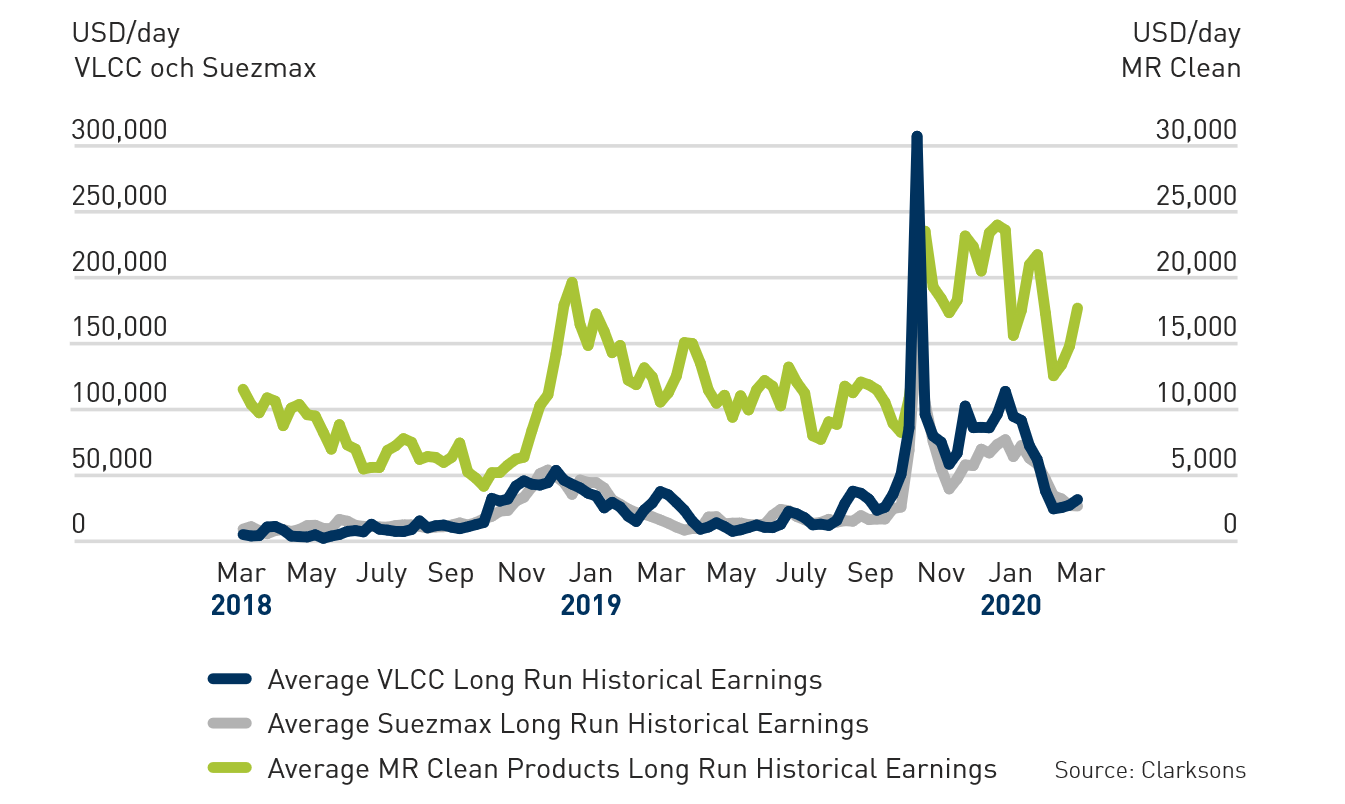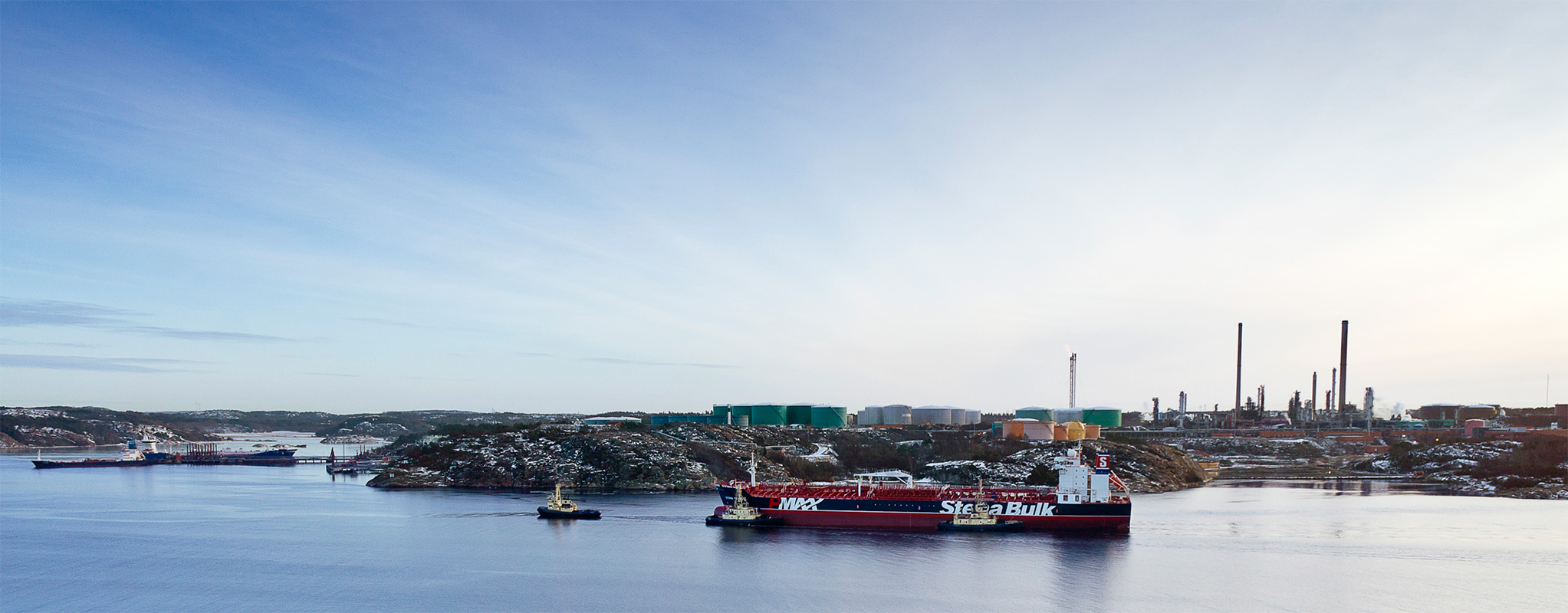Consequences of Corona
Clear short-term impact – harder to assess in the longer term
Measures to reduce the spread of the Coronavirus – including industrial shutdowns and travel restrictions – are now starting to make their mark on both the Chinese and global economy. Seaborne trade, including tanker shipping, is also affected.
Since our last update, the Coronavirus, Covid-19, has continued to spread. The vast majority of cases have been detected in China, but a good many have also been confirmed in a number of countries outside China, mainly areas of South Korea, Italy and Iran.
The consequences of the virus are now also starting to be reflected in the global economy – and future growth forecasts. China’s economy currently accounts for about 16 percent of the global economy – and for about 50 percent of growth over the last 10 years. With parts of the country’s industry closing again, albeit temporarily, this also has rapid consequences on a global level. The OECD recently (2/3/2020) made a downward revision of projected growth in China for 2020 from 5.7 percent to 4.9 percent. All major economies are expected to be affected and global growth is expected to fall from 2.9 to 2.4 percent in 2020.
The OECD’s calculations are based on the fact that the Coronavirus epidemic in China is now peaking in the first quarter and the virus is spreading to a very limited extent across the rest of the world – circumstances that are far from secure. Depending on developments, the economy may therefore be further weakened.
Effects on tanker shipping
The developments obviously also affect tanker shipping. The market is global in nature and the spread of the virus affects us in several ways.
The highest priority right now is to protect our seagoing employees’ health and minimise the risk of spreading the virus onboard the vessels. We and our crewing partner Northern Marine Management (NMM) are following developments closely and, of course, complying with the recommendations of the relevant authorities. In addition, NMM has taken a large number of preventive measures. These include continuous risk assessments and exercises. For shipping to and from seriously affected countries – notably China – a large number of special procedures have been introduced. These include special procedures with regard to what should be done before, during and after loading or unloading, contacts with onshore personnel and cleaning on board. In addition, there are also established routines in the event of a member of the crew being diagnosed as ill.
Looking at the tanker market’s development, we can see that the virus and its effects (both actual and psychological) have led to significantly reduced flows of goods and people. For example, imports of oil into China in February fell by approximately 20 percent.
The reduced flows, combined with the slowdown in the production rate in Chinese industry in particular, have in turn affected demand for both oil and tanker transport. Since the peak in December and the beginning of January, most market segments have suffered significant declines – but from high levels. The largest fall was in the VLCC segment, a direct consequence of the decline in imports to China. As many as 80 percent of China’s imports are with VLCC vessels.
Since our last update on 10 February, the market has stabilised somewhat. In the VLCC, Suezmax and MR segments, the rates have even increased slightly. It is also worth pointing out that the market is still generally higher than in the corresponding period last year. Freight rates for both VLCC and Suezmax are currently $30,000/day. Product tankers in the MR segment are at $15-22,000/day, depending on the region of the world.

We now hope that the spread of the Coronavirus can be contained, thereby reducing the effects – both health and economic. If it turns out that the virus is of a more temporary nature, the market is likely to bounce back and recover lost volumes relatively quickly. On the other hand, a more extensive and drawn-out scenario would risk having significantly negative consequences – for both the global economy and tanker shipping.

